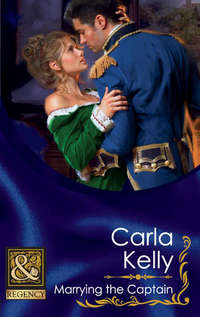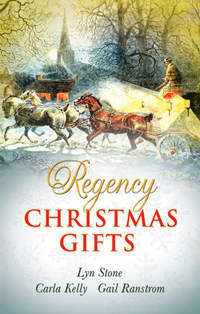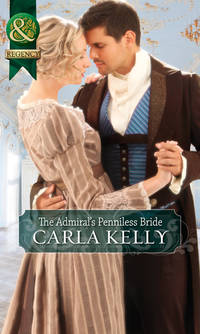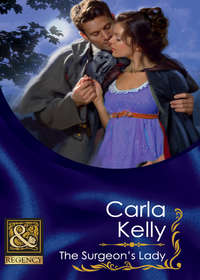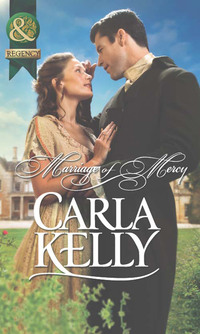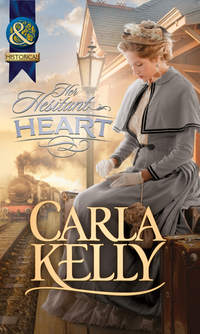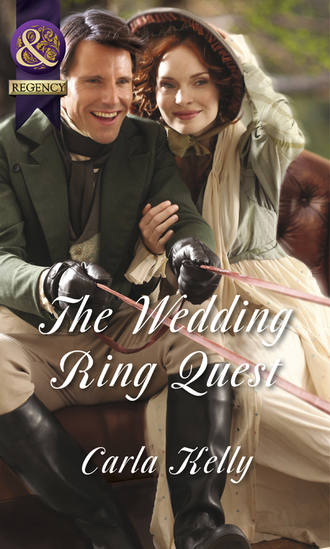
Полная версия
The Wedding Ring Quest
Ross couldn’t help the moan that escaped his lips. Nathan giggled.
‘For my da, rather,’ his son said. ‘He’s been long at sea and gets silly about food, I think.’
‘For your da, too,’ she amended, ‘and enough for all of us, because I like toffee pudding.’
She left the parlour. Ross looked at his son. ‘Am I embarrassing you, laddie?’ he asked.
‘Not yet,’ Nathan replied, obviously a man to hedge his bets. ‘She’s pretty, isn’t she?’
Oh, Lord God Almighty, he’s already a son of the guns, Ross thought, impressed. He wondered for a brief moment what Mrs Pritchert would think.
The toffee pudding appeared with Mary, who carried it on a tray, along with plates, forks and tea cups.
‘You went right to the kitchen?’ he asked. Maybe Mary Rennie knew something of full and bye.
‘Certainly. And what is Mr MacDonald doing but preparing a monster dinner of sausage, neeps and taties, whig bread and Cumberland butter. Captain, I told him to serve it in here, because you’re starting to interest me.’
Chapter Four
Mary Rennie, he’ll think you’re the most outrageous flirt in the history of Scotland, she scolded herself, amazed, as she set the pudding on the table. ‘I mean...’ she started, then stopped, honest to her heart’s core, because that was how she was raised. ‘No, I mean just that. I’ve met a rascally army officer or two, but never a sea captain. And could we be cousins?’
The sea captain laughed out loud, which surprised her, considering stories she had heard of the solemn and stoic men of that profession.
‘A rascally army officer or two? That is all?’ he teased in turn. ‘There are many more, Miss Rennie. Just ask any inmate of the Royal Navy. As for cousins, dessert first. Genealogy can wait.’
He accepted the bowl of pudding after she poured a little clotted cream on top. He must have known they were both watching him, but he dug into the dessert with a single-minded zeal that told her worlds about him. The first bite must have been a little bit of heaven, because he rolled his eyes. She couldn’t help observing his face, with its sharp features and weather wrinkles. He looked forty-five at least, but it was entirely possible that he was younger.
‘Twelve years, madam,’ he said, gesturing with the spoon, but so careful not to drop a scrap. ‘I have wanted this for twelve years.’
Mary looked at his son, already seeing a co-conspirator there. ‘What do you think? Should we let him eat the whole lot?’
Nathan shook his head. ‘I want some, too, and besides, Mrs Pritchert would scold him for eating dessert first.’
She glanced at the captain, already knowing he would supply the details, even though the pudding beckoned.
‘Mrs Pritchert is an estimable female and the widow of my best sailing master. She is rearing Nathan, because his mother died in an earthquake in Oporto. We think he was a week old.’
He spoke with a matter-of-fact tone that she found beguiling, considering that she was weary of her aunt’s circumlocutions and the tragedy that was Cousin Dina’s life. She liked the look of him, too. Most of the men she knew were men of business and finance like her uncle, with white, indoor skin and soft hands. None of them had an interesting scar like the one that ran from Captain Rennie’s left eye to his hairline. And absolutely no one had a peg-leg.
‘How on earth did you get Nathan home?’ she asked, intrigued by two lives that were far more interesting than hers.
‘By the grace of God, a goat and a frigate with willing nursemaids,’ he said, and there was no overlooking the fun in his eyes. She could only imagine at the desperate sadness, but that had probably been about ten years ago, if Nathan was as young as he looked. She knew how time could smooth away jagged edges; oh, my, she did.
It was good toffee pudding. She ate a smallish portion and left the rest to the captain. Nathan did the same thing, which touched her heart. Captain Rennie worked his way steadily through the dessert and appeared none the worse for wear when he finished. She could have laughed out loud as he eyed the residue around the rim of the bowl. Probably aboard his ship and dining alone, he would have run his finger around that rim; maybe even licked the bowl.
Mary hoped he would feel inclined to tell her more, before he and his son found their own private parlour. Her own day of travel had been boring in the extreme, without a single person of interest on the mail coach to talk to—not that she would have addressed a man she did not know, at least not one younger than sixty.
‘There now,’ he said, putting his empty bowl back on the tray. ‘After that restorative, let me think about my Rennie family tree. Feel free to jump in, Miss Rennie, if someone sounds familiar. My great-grandfather, Thomas Rennie, from Castle Douglas, had five sons. There was Angus, Max, Andrew, Douglas and Gerard. Ring any bells with you?’
‘Andrew,’ she replied promptly. ‘Named after the saint, but wasn’t, or so my father said. Papa was a rector, though, so few measured high on his scale. Papa’s grandfather was Gerard.’
He smiled at that. ‘Douglas was mine. I met Great-Uncle Andrew once.’ He leaned closer and there was no mistaking the twinkle in his eyes. ‘I also remember that Da counted the silverware when he left.’
Mary gasped and laughed out loud. ‘My father tells me similar stories. I think we are cousins of some stripe or other, Captain.’
She had not been raised to pry, but Mary knew she did not want either of them to leave her orbit so soon. Nearly a week on the road, tracking down Christmas cake, had shown her the dismal side of travel: there was no one to talk to. It was easy enough to bury her nose in a book on the mail coach during the day, or exchange pleasantries with respectable-looking females, but the evenings did drag.
‘I shouldn’t pry...’
‘Pardon me for asking...’
Nathan laughed at them both. ‘Mrs Pritchert always says to take turns in conversation.’
‘I always defer to rank. You first, Captain Cousin.’
‘I defer to the ladies, Cousin Mary,’ he said in turn. ‘May I guess your question?’
‘It’s not a difficult one. Where are you going?’
‘We’re heading to my sister’s home in Dumfries for Christmas.’ The glance he gave his son was a fond one. ‘Nathan has a chart and assures me we could have been there late this evening, but I wanted to eat here. My turn now: Where are you going?’
She opened her mouth to reply, but there was a knock on the door. ‘Come in.’
His face red from the heat of the kitchen, the innkeep struggled under the load of a massive tray. He was followed by a small boy with a smaller tray.
She looked at the captain, and he was watching her, a smile in his eyes that spread to his whole face as she watched, contradicting everything she had heard about the dour members of the sailing fraternity. Aunt Martha would probably have questioned the propriety, even if he was a Rennie, but Aunt Martha was nowhere in sight.
‘Right here, sir,’ she told the keep. ‘We’ll dine together.’
The keep gave her a puzzled look, as though wondering why there was any question about the man and boy dining with her. Hadn’t the captain already informed her that the keep thought them to be husband and wife? She looked to her new-found cousin to explain the situation, but his eyes were on the food. He would have to speak to the innkeeper later.
She could have closed the door and walked away and her cousin never would have noticed, which amused her. Captain Rennie liked to eat. She could also have stripped off her clothes and he wouldn’t have noticed. She couldn’t help her laughter at the roguish thought.
He looked up and surprised her. ‘Come, come, Cousin Mary,’ he chided. ‘Food has its place in my universe, but not to the exclusion of good company.’ He eyed the sausage with real appreciation, when, with a modest amount of Scottish fanfare, Mr McDonald lifted of the domed lid. ‘Mary, you may have...how many inches of this?’
She looked at the coiled sausage, moist and sweating and giving off the most heavenly aroma. Her mouth watered. It looked far more adventurous than the bowl of vegetable soup she had considered. ‘Six inches, Captain.’
‘Cousin Ross,’ he amended and nodded to Mr McDonald. ‘You heard the lady, sir. Six inches. Reminds me of a scurrilous joke I shall never tell. The same for you, laddie?’
Nathan nodded, his eyes wide. ‘Do...d’ye plan to eat the rest, Da?’
Mary watched with delight as the captain pursed his lips, squinted and eyed the monstrous sausage. Even after the keep and cook severed two portions, the remaining bulk was formidable.
‘Probably not, Son, if I plan to sleep tonight and not spend the wee hours of morning in the head. Maybe when I was younger, I could have.’ He eyed Mary without a single repentant look. ‘Plain speaking, ma’am. We Rennies specialise in it. Do you?’
‘I suppose I’d better,’ she told him, determined not to be embarrassed because she found father and son so fascinating. ‘Go easy on the neeps and taties, then.’
Mr McDonald served them and stood there. Mary suspected his sedate little inn seldom sheltered visitors as interesting as the Rennies.
Captain Rennie dismissed the keep with a slight nod, the kind of gesture that would have meant next to nothing if she had attempted it. Coming from a post captain, the nod sent McDonald to the door immediately. Too bad I cannot give a nod like that and send Dina scurrying, Mary thought. I’ll have to watch how he does that.
The whig bread smelled divine. She wasn’t sure about the rum butter until she tried a dollop on a scrap of bread. She couldn’t help her exclamation of pleasure. The captain took a break from his mouthful of sausage and buttered a larger slice for her, as though she were a child.
‘You’re used to looking after people, aren’t you?’ she asked.
‘A shipful, Cousin,’ he said around that mouthful of sausage. ‘Two hundred and fifty when we have a full complement, which is seldom.’
She savoured every bite of the bread and sausage, wishing she had loosened her stays before the Rennies knocked on her door and changed the course of her trip for one night. The errant thought crossed her sausage-soaked brain that she was going to miss them tomorrow.
Mary stopped eating just after Nathan pushed his plate away and staggered to the sofa to flop down. The captain showed no signs of quitting. The four-foot length of sausage had been greatly diminished and she wondered if he had a hollow leg as well as a peg-leg. She glanced at it, curious to know how he kept the thing on, then glanced away. She had never sat so close to someone with a wooden leg before, but it didn’t follow that she had lost all her manners.
She sat back and tried to hide a discreet belch behind her napkin. ‘That was amazing, Captain.’
‘Ross,’ he repeated, a man most patient. He set down his fork, but only long enough to add more potatoes to his plate. ‘Are you finished?’
Mary nodded. ‘I should have done that fifteen minutes ago.’ She chuckled. ‘Cap—Ross, I was going to have a bowl of vegetable soup and a hard roll.’
He just rolled his eyes at that dismal news and continued his tour through the Guardian’s cuisine. ‘Tell me, if I am not prying overmuch, what has brought a lady out on the road? I would think you should have a chaperon stashed somewhere.’
Mary shook her head, touched at his concern. I suppose you have added me to your stewardship of two-hundred-and-fifty men, she thought. And one small boy. ‘I’m past the age of needing a chaperon.’
‘I doubt that. You can’t be a year over twenty-four.’
‘Try almost four years over.’ She leaned closer. ‘Since you are being impertinent, so shall I be. How old are you?’
‘What do you reckon, Cuz?’ he asked. ‘I probably look fifty, but I blame the wind and general stress.’
‘I was going to say forty-five,’ she told him.
‘You’re off by seven or so. I am thirty-nine in January.’
‘Antique, indeed,’ she murmured. ‘Well, now, we are both getting on in years, but this is my first adventure. Care to hear about it?’
Ross did, surprising himself. He had spent so many years dining alone with charts and logs that the prospect of an evening with a pretty lady beguiled him. He glanced at Nathan, whose eyes were starting to close from the effects of such a meal.
Mary observed him, following his gaze. Without a word, she got up and took a light blanket off the back of the sofa. As he watched, she covered his son, then placed the back of her hand lightly against his cheek. Nathan opened his eyes, smiled at her, and made himself comfortable in that way of adaptable little boys.
She sat down again. ‘I am supposed to be having an adventure, all because of Christmas cake. Perhaps you call it fruitcake.’
‘I don’t call it anything.’ He chuckled. ‘I suppose I would have eaten nearly anything in my Turkish prison, but fruitcake?’
She widened her eyes, and he enjoyed the effect because her face could be so animated, he was rapidly discovering. ‘Turkish prison?’
‘A story for another day. It’s your turn now,’ he reminded her.
He kept eating while she told him a tale of Cousin Dina, a valuable ring and a cook named Mrs Morison who had volunteered her to retrieve four fruitcakes. Her tale was so homely and simple it took a moment to soak into his brain, because he was used to bad news, and storms and broadsides and noise.
‘You have commandeered three cakes already?’
She nodded, then laughed softly, careful not to disturb Nathan. He appreciated that nicety in her. Or maybe she was just a quiet woman. Whatever the truth, he found her air of peace almost as soothing as the Cumberland sausage. ‘I am suspecting that no one likes to eat my aunt Martha’s Christmas cake. P’raps not even Turks! You should have seen their eagerness when I said I needed them back!’
‘Did you tell them why?’
Mary shook her head. ‘That would only embarrass Dina, my cousin—our cousin?’ She seemed to gauge his expression. ‘Aye, she’s foolish, but I can be kind. I have concocted a taradiddle that the ingredients are a bit off and shouldn’t be served.’
You are kind, he thought. ‘And?’ he prompted.
‘No ring in those three cakes.’
She trilled her rs so beautifully. Ross enjoyed the sound, as well as the thickness of her accent. He found it almost a balm to his soul because it reminded him of earlier years, before Napoleon had decided to rule the known world. Ross thought of his mother suddenly and her well-nigh impenetrable brogue. Mam had died while he languished in a Spanish prison on the other side of the world in Caracas, Venezuela. He would have given the earth to hear her lovely voice one more time.
‘Captain?’ Her voice was soft and she looked concerned.
‘Just woolgathering,’ he told her. ‘I’ve been a long time away from a good brogue with no bark on it. The Royal Navy tends to smooth out most Scotsmen.’
‘You, included.’ She smiled at him, then glanced at his sleeping son. ‘I’m not so certain your wee bairn can understand much of what I said. Ah, well. I’ll be hopefully travelling back to Edinburgh tomorrow, triumphant with a ring, and you’ll be on your way to Dumfries.’
‘Aye.’ Funny that he wasn’t so pleased to think of that. Silence settled on them both, and he teased his vanity with the notion that Cousin Mary might miss him a little. He was done with dinner—or at least all he dared cram down his gullet—but he didn’t want to leave her orbit just yet. Time to snatch at a straw. ‘This fourth Christmas cake. Who has it here in Carlisle?’
She seemed not to mind his temporising. ‘Miss Ella Bruce, a chum of my auntie’s from their younger days at the Lorna McKay’s Select Academy for Females,’ she said with a straight face. ‘Don’t laugh! Aunt Martha learned to create any number of improving samplers.’
He laughed anyway, leaning back in his chair, still mystified by peacetime conversation. ‘Would it surprise you to know that there is someone on nearly every frigate, ship of the line and tender who has a sampler reading, “Great Britain expects every man to do his duty”?’
‘Do you?’ she teased.
‘Of course! My sister Alice Mae in Dumfries has two daughters.’ He sat back, thinking of the samplers, and Trafalgar, and Lord Nelson dead on HMS Victory. They were all in the employ of Napoleon, the grand puppeteer of Europe who pulled his strings so everyone would dance and caper about to his tune. But Cousin Mary didn’t know what that felt like.
Or did she? To his surprise, she leaned forwards and touched his hand, just the smallest touch. And here he thought he had trained his face to show no expression, especially not when things were going wrong and everyone looked at him to save them. Why in the world was he letting down his guard to this sweet lady intent on collecting Christmas cakes? Maybe he shouldn’t have eaten so much Cumberland sausage.
‘Do you know these people with the fruitcake?’ he asked, wanting to change the subject.
‘Not one of them,’ she said as quickly, maybe wanting to change it, too. ‘Only last week, my auntie asked herself why on earth she is still sending Christmas cakes to people she hasn’t heard from in decades. I suppose that is what people do at Christmas; ergo, Ella Bruce gets a fruitcake.’ She laughed. ‘Don’t look for logic, Captain; it’s Christmas.’
* * *
Ross couldn’t think of anyone, except his son, that he had ever sent anything to at Christmas. He opened his mouth to admit it when someone knocked on the door.
Mary gave the door a frown that hinted she wished they had not been interrupted, or so he wanted to think. As she got up to open the door, her hand just brushed his shoulder—again, the lightest touch. He had probably imagined this one, because he didn’t think she was a forward woman at all.
‘This will be Miss Bruce’s emissary,’ she whispered.
‘Eh?’
‘I sent a note to her home, explaining the situation, and he responded at length, but managed to impart amazingly little.’ Her voice dropped to a conspiratorial whisper. ‘D’ye think he’s a solicitor? Let’s hope he has the cake.’
Let’s hope he doesn’t, Ross thought suddenly as she opened the door. Maybe you could use a chaperon, if the cake has strayed. Pray God it has crawled away to die somewhere else.
Chapter Five
His name was Malcolm Barraclough, and he was the bearer of bad news. He was also prissy and overly dramatic, making Mary supremely grateful he was unknown to her. Let Miss Ella Bruce have the pleasure of his stultifying company once Mary quitted Carlisle.
After ten endless minutes of listening to Mr Barraclough explain who he was, Mary made a fearsome mistake—she glanced at Captain Rennie and witnessed an amazing eye roll. Maybe the Rennies truly were inclined more to plain speaking, as he had said. She doubted that the captain had wasted a word in his entire life. This led to her second epiphany: she needn’t suffer bores gladly.
Mary staunched Malcolm Barraclough’s haemorrhage of words. ‘Sir, please take a seat. You are Miss Bruce’s nephew and she has taken herself off to Stirling? Is that the gist of it?’
The man nodded, surprised, and obviously unused to interruption. ‘She will be back e’er long, but gone just long enough for your little errand to—ahem—save my bacon.’ He put his hand to his forehead. ‘I did a rash thing.’ He hung his head in manufactured shame. ‘I’m not certain what I was thinking.’
Captain Rennie laughed, but was rewarded with a fishy stare. ‘Were you foxed? Three sheets to the wind?’
The estimable Mr Barraclough drew himself up, which was amusing enough, because he was even shorter than Mary. ‘Captain, I am an elder in the Kirk!’
‘Ooh, no vices allowed?’ the captain asked in an innocence as manufactured as Barraclough’s humility.
‘None whatsoever.’
You have a playful streak, Mary thought, giving the captain her own fishy stare. She returned her attention to her sitting-room guest. ‘I was hoping you would just bring me the Christmas cake, Mr Barraclough. The ingredients were a wee bit off and my auntie wanted me to retrieve them. I explained this in my note to you this afternoon.’
‘I cannot return it, for I have sent the Christmas cake to another,’ Mr Barraclough confessed. His head hung lower. ‘My Aunt Ella has no idea.’ He struck a little pose. ‘I lay the blame at Cupid’s door.’
The captain turned away and his shoulders started to shake. Don’t look at him, Mary warned herself. She had to ask. ‘Cupid’s door? But this is Christmas, sir, not Valentine’s Day.’
‘Cousin Mary, people can fall in love at Christmastime, too,’ the captain said, his expression bland, except for a lurking twinkle. ‘Surely it happens all the time.’
Mary looked from one man to the other, one a tease and the other a prig, and fell back on her remedy for all ills. ‘Gentlemen, shall we have tea?’
Mr Barraclough agreed to tea, settling himself at the table with the air of a man prepared to stay all evening. Mary poured, wondering if tea had been a tactical error. She knew better than to look at the captain, who had seated himself on the sofa beside his sleeping child. She wanted to laugh when he crossed his legs and the peg rested atop his knee. He waggled it once or twice; Mr Barraclough stared, then coughed and looked away.
The sight of the peg-leg seemed to have deprived him of speech, which gave Mary the opening for her questions. ‘Sir, did Miss Bruce know about the cake?’
‘No. It arrived after she left to visit her sister, my mother. She gets one every year.’
‘A sister? How amazingly profligate,’ Captain Rennie said.
‘Sir! A fruitcake! From someone in Edinburgh I have never met!’
The peg-leg waggled again and Mr Barraclough stared at it. I’m going to thrash a post captain in the Royal Navy, once this bore leaves, Mary thought.
‘What did you do with the cake?’ she asked.
After another look at the wooden leg, Mr Barraclough dragged his eyes away and told a tale of Miss Bruce’s unrequited love for a solicitor and the thirty years she had pined for him. It was the stuff of Highland legend, if Mr Barraclough was to be believed. ‘Mr Maxfield was too shy to declare himself, so my mother tells me, and my aunt too much a shrinking violet to nudge him.’ He paused for breath finally, casting sidelong glances at the peg-leg, which had mercifully settled down, to Mary’s relief.
‘And?’ Mary prompted. ‘My aunt has never mentioned such a tale.’
‘Aunt Ella falls into severe melancholia at Christmas, because Mr Maxfield wasn’t ever brave enough to kiss her under the mistletoe positioned so strategically at the Select Female Academy.’ He sipped his tea noisily. ‘For thirty years, she has pined, cried and taken to her bed at this time of year, when most Christians rejoice. I have witnessed this annual agony and it is not a pretty sight! Then she goes to Stirling and pines and cries there, too.’ He gave a gusty sigh. ‘Such is the fate of the spinster, I suppose.’
Lord, I hope not, Mary thought, then tried to remember the last time anyone had kissed her under mistletoe, much less a kissing ball. To her dismay, nothing came to mind.
‘But what does this have to do with the missing cake?’ Captain Rennie asked. To Mary’s surprise, he sounded interested.
‘I, sir, am a romantic,’ Mr Barraclough announced, with a click of the teacup on the saucer. In his tight, shiny suit, he looked more like the counting-house clerk he probably was, and no solicitor. Mary felt her heart soften as she began to understand this little man, probably no more acquainted with adventure than she was.
‘After ten years of listening to my aunt suffer this annual torment, I decided to mail the fruitcake to Tavish Maxfield, along with a note declaring her steadfast love and a proposal of marriage. I signed it Ella Bruce.’
Silence, then the captain applauded. ‘Well done, Mr Barraclough!’ he declared.
‘D’ye think so?’ the man asked, blushing like a maiden. He tweaked the few hairs forming a fringe around his head, smoothing them with nervous fingers.


